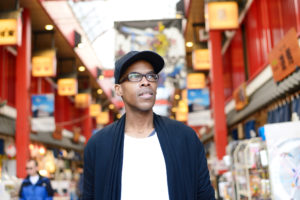
Many of us implement travel into our lives as a form of self care. The balancing act between our day-to-day responsibilities and our mental health issues can often times cause burn out making a change of scenery more than necessary. But it is important to ask ourselves if we’re really using our vacations to recuperate or are we still allowing ourselves to be affected by the things that weigh us down while we’re away.
Many times, I’d leave and come back just as physically and mentally exhausted as I was before I left, making the entire trip pointless. I had to learn what worked and what didn’t in order to ensure that I was getting what I needed mind, body and spirit. Here are five things I learned about my mental health while traveling.
1. My Cell Phone Is My Worst Enemy
I (like a lot of people) work in a high pressure profession that requires me to constantly be tied to my phone. I’ve even found myself breaking my sleep to roll over and check for updates throughout the night.
This caused severe anxiety and fatigue after an extended period of time. I knew that I could never totally unplug while I was away. So I decided to only allot ten minutes of my day to check my phone, (even if it meant leaving it in my room while I relaxed and took in my new surroundings).
At night, I would turn my phone completely off and leave it across the room so that I’d be less likely to wake up and check it. This gave me a chance to get better rest, center myself and really be present in the moment. Not constantly being in limbo between work and vacation made a huge difference.
2. Sightseeing Isn’t Always Necessary
I love to explore. The thought of visiting a new place and not allowing myself to taste new foods, wander into historic areas of the city and meet new people was unthinkable until recently. I had to change my idea of what I believed was the “perfect” vacation. Sometimes the perfect vacation can be spent laying in a hammock listening to the ocean for five consecutive days, or waking up to have a great meal and climbing back into bed with an interesting book.
Consider giving yourself (depending on the length of your stay) one or two days to sightsee and then using the bulk of your days off to meditate and rest. Letting go of the idea that sitting still is a bad thing while on vacation has allowed me to rejuvenate in ways I never would have imagined.
3. It’s O.K. To Choose Yourself
It is difficult for many of us to put our needs first (especially if we have children). I remember once taking a vacation and feeling so guilty that I didn’t want anyone to come along. I just wanted to be one with the sun, experience nature and organize my thoughts. I had to remind myself that not only was it ok to take time to myself to unwind, but that I deserved it!
Grant yourself permission to have alone time so that you can be at your best. If you’re not in a healthy mental space, you’re of no use to anyone else. Even if you’re a parent and things are hectic, try to set aside time to getaway on your own as often as your schedule permits. Not only will it be beneficial for you, but your family will thank you as well.
4.) “Healthy Body, Healthy Mind” Isn’t Just a Cliche’
I used to have a tendency to use my vacation as an opportunity to overeat and drink way more than I should under the guise that I was “treating” myself. What I didn’t realize is that I was making myself feel worse by consuming the wrong things. Processed foods, refined sugars, caffeine and excessive alcohol drinking all play a role in triggering symptoms of depression.
While nothing should take the place of medication (if that what is needed to help someone with mental health issues), it has been scientifically proven that there are certain foods that can have a positive effect on your mental health. While away on vacation, consider ordering dishes with antioxidants that lesson the destruction of free radicals such as peaches, blueberries, collards and broccoli. Also, choose carbs that are linked to boosting serotonin levels in the brain like whole grains and legumes.
5. Improving Your Mental Health Doesn’t Start With a Destination
I’m sure you’ve heard the quote “Wherever you go, there you are.” It basically means that no matter how hard you might try to escape the day-to-day, the things that need to be dealt with will still be there until a conscious decision is made to heal or change. While travel has helped me to unwind, relax and become more centered, it still didn’t take the place of consistent therapy, meditation and facing life head on.
I’d like to encourage anyone who struggles with mental health issues of any kind to seek professional attention. Travel (while in many ways effective) is only a temporary fix. Navigating through tough issues and creating a healthy mental space is an everyday challenge that shouldn’t be taken lightly.
Tiffany D. Smith is a native Chicagoan who has spent nearly 15 years as a television journalist. She received her B.A. in Radio and Television Production and M.A. in Journalism from Southern Illinois University at Carbondale. She uses her travel blog theloveoffoodandtravel.com to inspire people of all ages and backgrounds to see the world. Connect with Tiffany on Instagram @loveoffoodandtravel .








